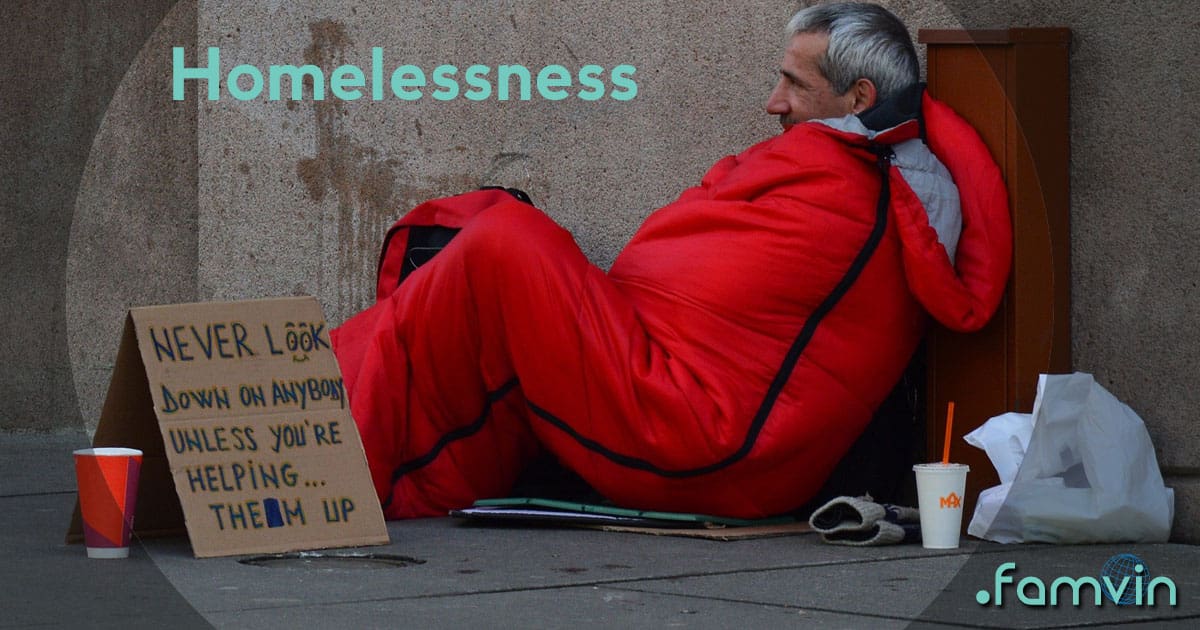Has a Cell Phone Become a Basic Need?
Many people holler at a homeless person that they should go get a job. So why be offended if they pulled out a cell phone?
Filling out an online application is pretty much the only way they would be able to comply with your request. For this reason and many more, having a virtual address in the present could equate to having a physical address in the very near future.
This reflection represents only highlights from Smartphones are the Smarter Way to Fight Homelessness – Invisible People. I found the entire article eye-opening and recommend you read it.
Perhaps it’s time to have that tech conversation. The one where we admit that smartphones, laptops, and Wi-Fi are an absolute necessity. This is particularly true for low-income families who are homeless or vulnerable to becoming homeless soon.
When you think about it, we use smart phones for virtually every aspect of our lives – from filling out forms to renewing expired licenses, from ordering food to applying for employment. It is how we connect, how we learn, how we grow. It is the way that total strangers reach out and touch one another.
Cell phone has become a basic need
Why do we continue to view this technology as a luxury when it has clearly become a basic need?
The recent statistics reveal the following:
- Of the group of people surveyed, 72.3% owned mobile phones
- 55% of participants had regular access to internet services
- 94.2% still lacked the security of maintaining monthly or yearly plans
How the phones were used:
- 30.7% of homeless senior phone owners made use of their phones to seek employment, housing, or both
- 64.6% utilized them as a way of communicating with healthcare providers
- 82.3% of participants in the study cited keeping in touch with family members as their main reason for investing in cell phones
Most importantly, holders of cell phones were proven to be more likely to acquire housing when compared to participants who lacked this basic need.
Virtual Case Management: Cyber Outreach Is Desperately Needed for Serving the Homeless Population
For literally a decade, Mark Horvath of Invisible People has been trying to convince the homeless sector to start using mobile tech to help people. Leveraging homeless people’s phones will save lives and money.
Experts now agree smartphone technology is, indeed, the smarter approach to preventing and reducing homelessness.
Making use of newer technologies would make it easier for social workers to connect with those in need. This translates to:
- Faster access to resources
- Faster housing
- More accurate point in time counts
- Health updates
- News updates
- Safer environments for everyone
As we delve deep into an era of mass unemployment, it’s high time we stop telling our fellow human beings how to be poor.







A useful insight….
Can one imagine how this might affect the census? But the trick is to figure out how to stabilize the phone number itself and that doesn’t affect only the homeless but the marginalized.
I think it has. The world is increasingly digital. Even doctors prefer talking to patients on Zocdoc & similar virtual apps. Which makes universal WIFI a must. So many resources cannot be easily accessed otherwise, especially in pandemic times. Great point, Mike, thanks for bringing attention to it.
I too believe it’s a necessity. At St, Patrick Center in St. Louis, MO, a vast majority of those who experience homelessness use cell phones>. ( I’ve never stopped to ask they who pays the bill!!!!)
Yes a cell phone gives a person a voice to reach out and it part of a unifying link with others. A brilliant observation of a real need. Thank you.
As a Vincentian, where should my chapter start? I’ve never had anyone request a cellphone, although a few have requested help to pay the bill. Perhaps most people assume that cellphones are a luxury, and that we would not help them buy a phone.
When our new offices were built in Brownsville, TX for Proyecto Juan Diego, Sr. Phylis Peters, DC, insisted that 4 computers be made available in the entrance lobby for use by the people we served. It meant they could do job applications, school work, etc. So many in the neighborhood had no internet access.
This is only made worse now with COVID19 and school closers. The digital divide is huge.
Patricia Connolly, DC Thanks for your thoughtful invitation to all of us to think about the necessity of people who are homeless, who have little or no income to have a cell phone. Many of our communities and companies have “deals” with tech companies so that members can have cell phones, a necessity, at a low price. I am wondering if those communities and companies could and would at least tithe themselves to give phones to the groups working the homeless to have a cell phone and learn how to use it for their basic needs. So easy to judge on what those in poverty should not have rather than inquiring about their needs….Thanks for helping us to think more broadly and deeply Fr. Mike as we try to understand and be curious enough to listen to their perspectives and serve them well in our complicated times.